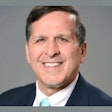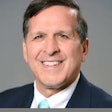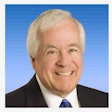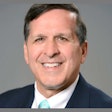
The initial letter of a person's first name may affect some life choices, like whether they decide to become a dentist, according to a study recently published in the Journal of Personality and Social Psychology.
People are somewhat predisposed to careers that align with the first letters of their names, which is a theory referred to as the nominative determinative effect. These findings not only back up previous research that showed, for example, that many men named Dennis were dentists who belonged to the ADA but suggest that these decisions may not always be driven by rational conscious thinking, the authors wrote.
“Our results are consistent with the identity expression argument that professions congruent with profession seekers’ names (e.g., Dennis and dentist) implicitly provide a source for one’s identity expression and choice,” wrote the authors, led by Promothesh Chatterjee, PhD, of the David Eccles School of Business at the University of Utah, (J Pers Soc Psychol, November 2023, Vol. 125:5, pp. 943-968).
Nominative determinism is a phenomenon in which people gravitate toward professions that reflect their names. Currently, research shows conflicting views, with some studies documenting the phenomenon’s effect and others questioning the effect and its generalizability.
To explore whether this phenomenon occurs in today’s world, the researchers used large language models trained on Common Crawl, Twitter, Google News, Google Books, and two natural language processing word-embedding algorithms to analyze the occurrence of people’s first names. All first names listed on the U.S. Social Security Administration website and 508 careers were included in this research, according to the study.
The analysis revealed that more people were inclined to pursue professions that began with the same letter as their first name. The pursuit of these careers was based somewhat on the positive feelings that people have for themselves, and those positive feelings often extend to things associated with the individual's identity, such as their name, the authors wrote.
Despite these tendencies, people still have free will, and many times, people are likely unaware that unconscious preferences have influenced the decisions they have made during their lives, they wrote.
The study had limitations, including that only one-word professions were used. Therefore, the study results are only generalizable to single-word careers, the authors wrote.
“(Nevertheless), a significant nominative determinism effect exists in profession choice,” Chatterjee et al wrote.




















